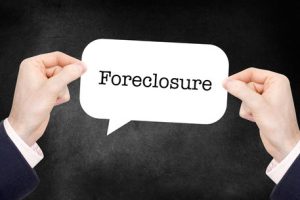Coming Changes To Illinois Foreclosure Law

Several tweaks to the Illinois Mortgage Foreclosure Law will expire around the end of the year, barring some unforeseen legislative action.
One provision, the GPN rule, expired in July 2016. Lawmakers allowed the Grace Period Notice loophole to lapse, in part, because of a lower foreclosure volume. Similarly, a 0.1 percent foreclosure sale fee increase should remain in effect only until March 2, 2017. Finally, a provision allowing borrowers to vacate sales that violated HAMP’s rules expires on December 31, 2016, the same day the government’s Home Affordable Modification Program is scheduled to end.
All these matters bear watching, as lawmakers have the option to resuscitate such statutes after the deadline passes.
Protecting Home Equity in a Chapter 7
During periods of financial distress, many people shift money away from unsecured debt servicing, like credit cards and medical bills, and apply these funds to secured debts, like auto loans and home mortgages. As a result, they fall behind on the former to stay current on the latter, a variation on the old “robbing Peter to pay Paul” idea. When these people file Chapter 7 liquidation, which nearly always happens eventually, they want to exempt their home equity and keep their homes. Both Illinois and Indiana have rather large home equity exemptions, especially for joint filers. In some cases, the wildcard exemptions are available to augment these dollar limits even further.
But non exempt home equity is still sometimes an issue, especially in single-filer scenarios. Some people may need to use the wildcard to exempt other property, such as savings accounts, rental property, or additional vehicles. Other people have a considerable amount of home equity, and they are understandably reluctant to tap into it in order to pay credit card bills.
In these situations, property valuation on Schedule A can be key. Debtors must list the as-is cash value (a.k.a. “Garage sale value”). Most investors will pay a maximum 60 percent fair market value in an as-is cash home sale, so arguably, a home’s as-is cash value is about fifty cents on the dollar, and should be valued as such.
The trustees (people who oversee the bankruptcy on behalf of the judge) nearly always object to home valuations this far below fair market value. To defend the figure, it may be best to obtain several written offers from different home investors that substantiate the claimed amount.
Satisfying Mortgage Arrearage in a Chapter 13
If secured debts are an issue, Chapter 13 is normally the best option. More to the point, if mortgage arrears are an issue, bankruptcy debtors basically have two options to satisfy them.
By law, Chapter 13 debtors have either three or five years to make catch-up payments and come current on secured debts. Because of the automatic stay, moneylenders can take no adverse action during the repayment period without special permission from the judge. So, Chapter 13 allows debtors to set up repayment plans that meet their budgets, and the bank has little choice other than to quietly take the money.
Mortgage modification is a better option for some homeowners, because these payment deferral plans immediately eliminate arrearage and usually lower the interest rate. The bankruptcy judge normally oversees any such negotiations, so bankruptcy debtors have a much better chance of obtaining mortgage modifications than other homeowners.
Rely on Experienced Lawyers
Bankruptcy laws are designed to help distressed homeowners. For a free consultation with an experienced bankruptcy lawyer in Chicago, contact the Bentz Holguin Law Firm, LLC. We routinely handle cases in both Illinois and Chicago.
Resources:
dsnews.com/uncategorized/11-22-2016/several-illinois-foreclosure-provisions-sunset-will-rise
washingtonpost.com/blogs/where-we-live/post/selling-a-home-to-a-real-estate-investor/2012/12/11/5907944e-40bb-11e2-a2d9-822f58ac9fd5_blog.html


